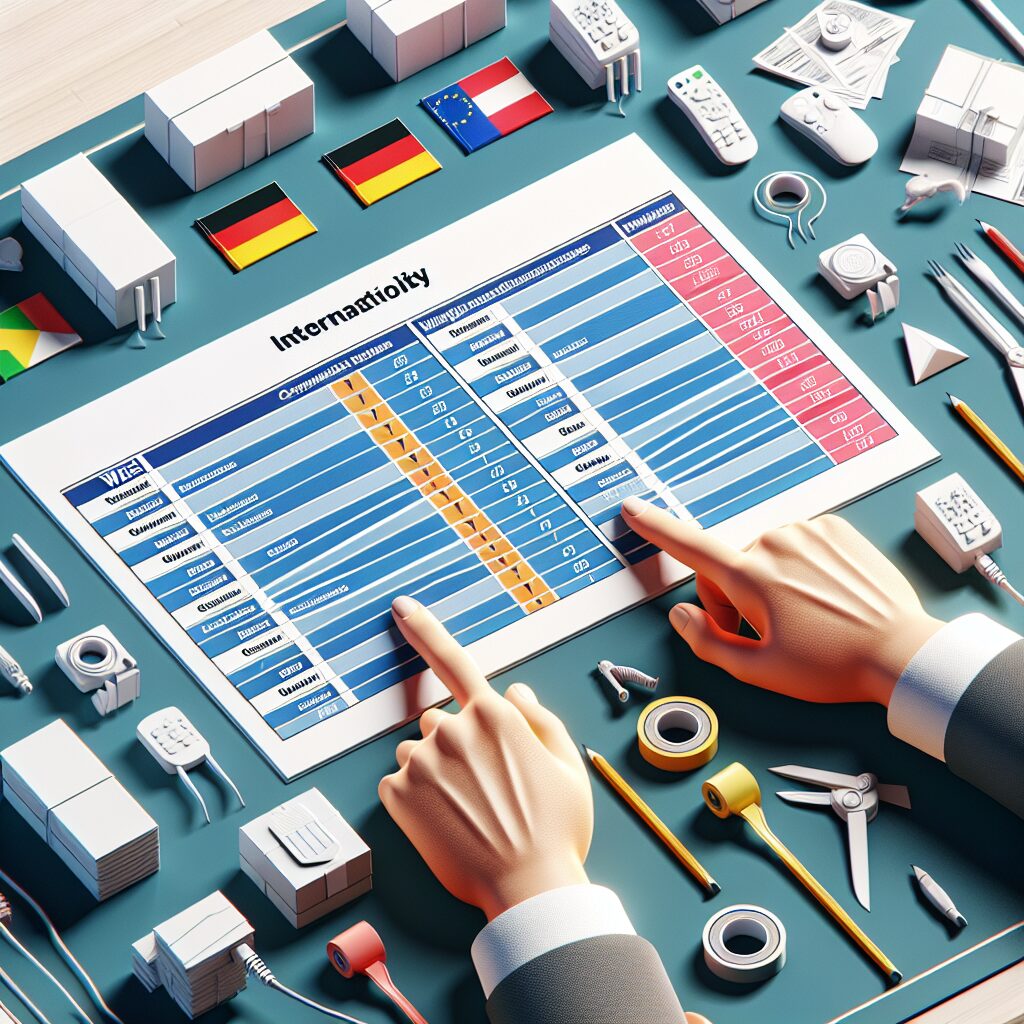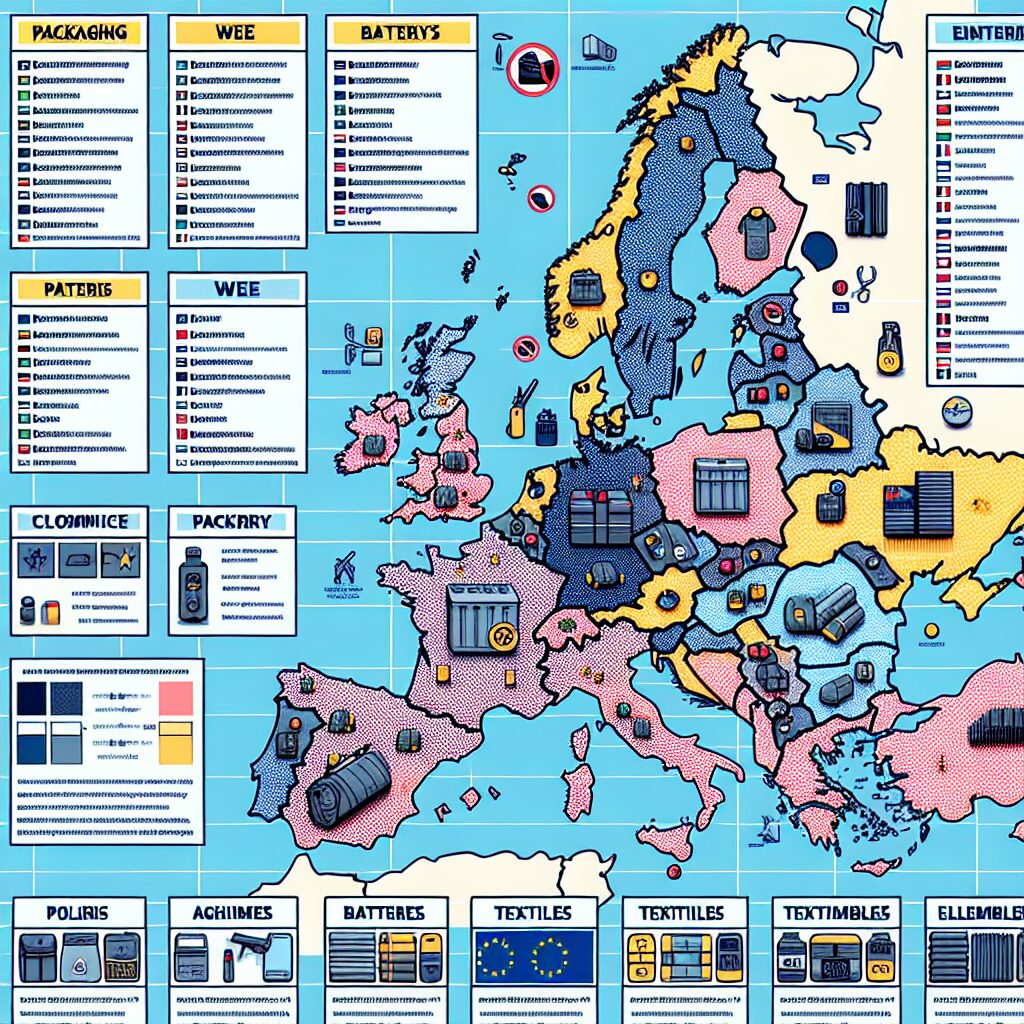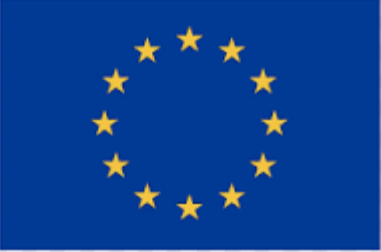About eldris
epr.eldris.ai leads the EPR sector, in fast, automated, AI Agent EU Complaince. LUCID Packaging, WEEE, and Battery Compliance for Brands, E-Commerce and Service based businesses expanding into the EU.
In This Article
- EPR compliance is essential for operating sustainably and legally across the EU.
- Fragmented regulations demand a centralised, expert-led compliance system.
- Full-service EPR solutions automate registration, reporting, and fee management.
- Important 2025 deadlines make timely compliance action non-negotiable.
- EPR Compliance Services transform risk into strategic growth potential.
Why EU Sellers Struggle With EPR Compliance
Understanding Fragmented EPR Rules
For sellers operating within the European Union, navigating Extended Producer Responsibility (EPR) regimes is no small challenge. Different countries enforce varying obligations, reporting templates, registration systems, and fee structures. This foundational complexity poses a significant barrier, especially to marketplace sellers who list products across multiple regions. EPR Compliance Services offer a solution to this growing issue by consolidating requirements under a centralised system, streamlining compliance, and reducing room for error.

The Role of EPR Compliance Services in Seller Success
Centralized Registration and Reporting
EPR Compliance Services play an essential role in simplifying producers’ obligations throughout the EU. They centralise the registration process, eliminating the need for sellers to interact individually with national Producer Responsibility Organisations (PROs). This not only reduces administrative stress but also ensures timely, accurate reporting across all obligated markets. By integrating automated systems and expert oversight, service providers allow sellers to focus on their core business while maintaining consistent compliance standards with packaging, electrical, battery, and textile regulations.
“Centralised EPR systems remove the guesswork for sellers operating in multiple European countries, ensuring uniform, accurate, and efficient compliance.”
How Full-Service EPR Automation Works
Full-service EPR automation integrates advanced software tools with regulatory expertise to provide end-to-end compliance support. Sellers begin by submitting product data, including product categories, packaging materials, and unit volumes. The system then matches that data against each country’s legal obligations, automatically completing registrations with the appropriate PROs.
Once registered, the EPR Compliance Service continues to collect, analyse, and report data on a quarterly or annual basis, depending on jurisdiction. These platforms also track fee structures and notify users about payment schedules or changes in legislation. In many cases, services include in-country representation and full liaison with authorities, removing language and legal barriers to market expansion. This robust automation guarantees that nothing falls through the cracks, especially for high-volume marketplaces.
Benefits of Centralized EPR Management
The benefits of centralising EPR management for EU compliance are manifold. Sellers no longer need to employ internal legal teams or country-specific experts, saving both time and resources. Costs become predictable, and annual budgeting is improved by accurate tracking of compliance fees. Additionally, legal exposure is reduced, thanks to error-proof data validation and real-time monitoring of shifting regulatory landscapes.
Moreover, centralised dashboards offer visual insights across all compliance activities: from initial registration through to invoice consolidation and submission history. For brands selling across five or more EU states, central coordination becomes essential for efficiency at scale. Additionally, integrated solutions often support data integration with ERPs or marketplaces like Amazon and Zalando, further simplifying trader obligations.
Key Challenges Avoided by Automated EPR
Automated EPR Compliance Services eliminate several critical risks inherent in manual or fragmented compliance approaches. First and foremost is the mitigation of non-compliance penalties, which can include significant fines, delisting, or bans from online marketplaces. Additionally, by automatically generating and submitting reports, these services circumvent the delays caused when sellers must compile data manually across systems or markets.
Language barriers and unfamiliarity with local governance also present obstacles. In-country PROs seldom operate in English, and poorly translated submissions may lead to rejection and additional scrutiny. Centralised services often act as local representatives, ensuring culturally and linguistically appropriate communication with regulators.
Another challenge resolved by automation is the lack of transparency in calculation methodologies. Without expert knowledge, sellers may overpay or underpay EPR fees, opening themselves to audits or inaccuracies. Automated calculation ensures fair, accurate charges are applied based on real-time material and volume inputs.
2025 Compliance Deadlines Every Seller Must Know
The regulatory landscape in the EU is shifting rapidly towards environmental accountability. Several countries have introduced revised EPR schemes with hard deadlines in 2025. France is expanding its scope to textiles and toys, while Germany is tightening data transparency requirements for plastic packaging. Spain, meanwhile, is launching a new EPR registry in Q1 of 2025 specifically targeting online sellers operating without physical presence.
Amazon and other marketplaces have announced stricter seller controls by mid-2025, demanding proof of EPR registration and regular reporting. Sellers without proper documentation risk delisting or revenue loss. Therefore, engaging with EPR Compliance Services before these deadlines is not just ideal—it’s essential for risk mitigation and sustained growth.
Tracking each national deadline individually is an immense task. Full-service providers maintain an EU-wide calendar of deadlines, updated in real time, and notify sellers proactively, thereby ensuring complete preparedness. This predictive compliance approach is invaluable for high-growth brands.
Checklist for EPR Packaging Compliance Across the EU
To meet packaging compliance standards throughout Europe, a structured checklist is vital. Each seller should take the following steps:
- Determine which EU countries your products ship to.
- Identify applicable product categories (e.g., electricals, textiles, batteries).
- Calculate packaging volumes across all SKUs.
- Register with national PROs in each applicable market — or work with a centralised service.
- Obtain EPR registration numbers and provide to marketplace platforms.
- Implement ongoing data tracking systems for quarterly or annual reporting.
- Pay associated recycling/contribution fees on time.
- Store compliance documentation for 5–10 years, as per regulatory requirements.
EPR Compliance Services can manage this entire lifecycle, minimising delays and human error. Vendors like Eldris also ensure dynamic adaptation to future rule changes, providing agility in an evolving ecosystem.
Real-World Impact: Marketplace Sellers Using Eldris
Consider a midsize electronics brand selling across Amazon, Otto, and Cdiscount. In early 2023, they received warnings from two marketplaces demanding EPR registration numbers within eight weeks. Lacking internal expertise, the brand turned to Eldris and immediately benefited from seamless onboarding. The platform registered them with nine different PROs, processed quarterly packaging data for three jurisdictions, and provided legal representation where necessary.
Over the course of a year, not only did compliance violations reduce to zero, but the company also discovered it had overpaid fees in certain channels, which Eldris successfully reclaimed. Their sales increased 12% Y-o-Y due to uninterrupted marketplace visibility. Furthermore, their ESG score improved thanks to documented compliance with EU sustainability policies—a key metric for partnerships and investments.
This case showcases not just regulatory relief but also real-trade enablement. EPR Compliance Services represent an essential CX enhancement for platforms that penalise non-compliance by obscuring product listings.
Choosing the Right Full-Service EPR Partner
Given the increasing complexity of European regulations, selecting the right EPR Compliance Services provider is crucial. Several criteria can help guide this decision:
- Ensure the provider offers EU-wide registration, not just in Germany or France.
- Look for multilingual support to navigate in-country PRO communication.
- Evaluate their data integration capabilities with your ERP or fulfilment systems.
- Examine case studies or user reviews demonstrating problem resolution capacity.
- Confirm whether legal representation is included without surcharges.
- Ask about reporting frequency notifications and deadline tracking engines.
A robust EPR partner should not only minimise risks but also support your compliance as a business enabler, unlocking markets and investor confidence. It’s critical to evaluate whether the provider meets updated 2025 norms and includes sustainability metrics that dovetail with future ESG reporting obligations. Learn more about EU Compliance & Extended Producer Responsibility
Scalable Strategies to Expand Responsibly in Europe
As European legislation continues to evolve, brands need scalable compliance strategies that support cross-border expansion. EPR Compliance Services empower growth by converting regulatory compliance from a barrier into a repeatable operational process. Whether entering Poland, Sweden, or Italy, sellers can deploy the same centralised response models instead of reinventing procedures for each region.
In addition, marketplaces increasingly reward compliant vendors through partnership badges, prioritised accounts, and streamlined listing processes—all of which boost visibility and conversions. Read a related article
Investing early in a platform like Eldris provides a future-proof response to tightening environmental expectations from European consumers. Sellers embracing compliance as brand opportunity, rather than burden, achieve better credibility and long-term gains. Automate Germany VerpackG Compliance for 2025
Conclusion: Streamlining Sustainability & Regulation
[CONCLUSION_CONTENT]
Great guide on epr-compliance-services-for-effortless-eu-compliance-many-sellers-face-fragmented-epr-rules-across-the-eu-and-lack-internal-expertise-a-full-service-epr-offering-centralises-registrations-fee-for – Community Feedback
What is the EPR regulation in the EU?
EPR (Extended Producer Responsibility) regulation in the EU requires producers to register, design compliant products and packaging, report market volumes, achieve recycling targets, and fund recycling or recovery at end-of-life.
Does the US have EPR laws?
Yes, the US has 146 EPR laws across 35 states for 21 product categories, including packaging, protecting vast land areas and populations.
What does it mean to be EPR compliant?
EPR compliance means following legal obligations for product stewardship, including producer registration, reporting, eco-friendly packaging design, and funding recycling across regulated regions.
What are the risks of EPR?
Key risks include lack of data readiness and reporting infrastructure, potentially leading to non-compliance, missed deadlines, and penalties.










